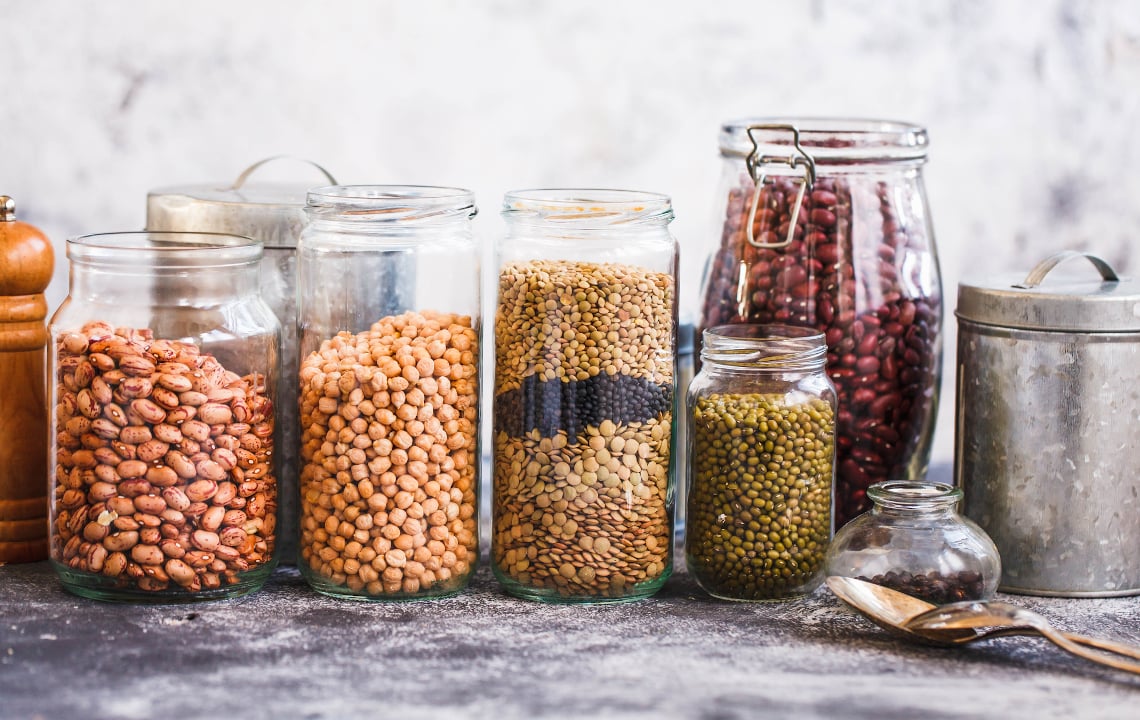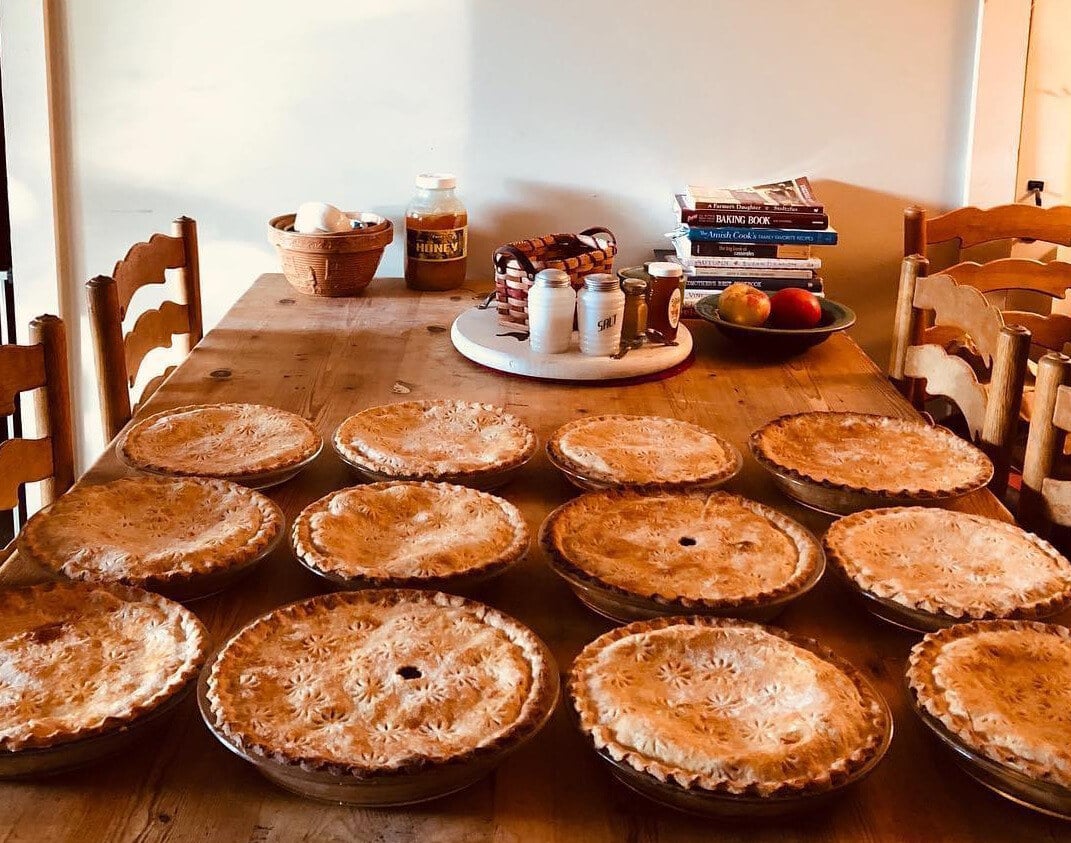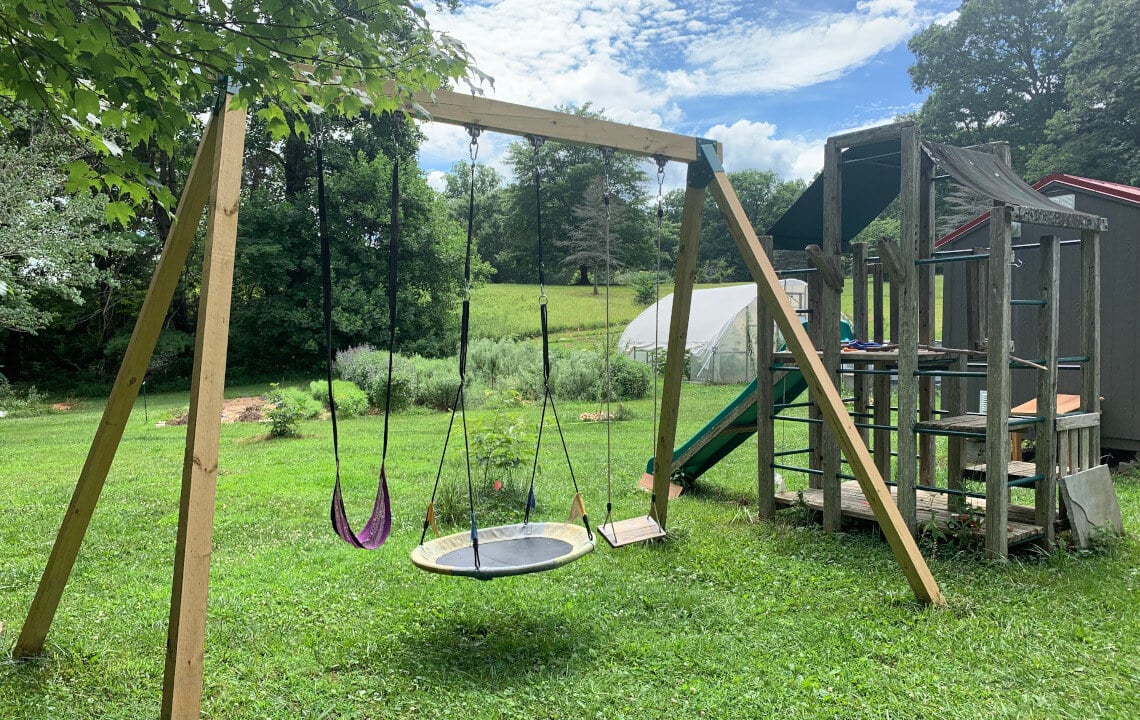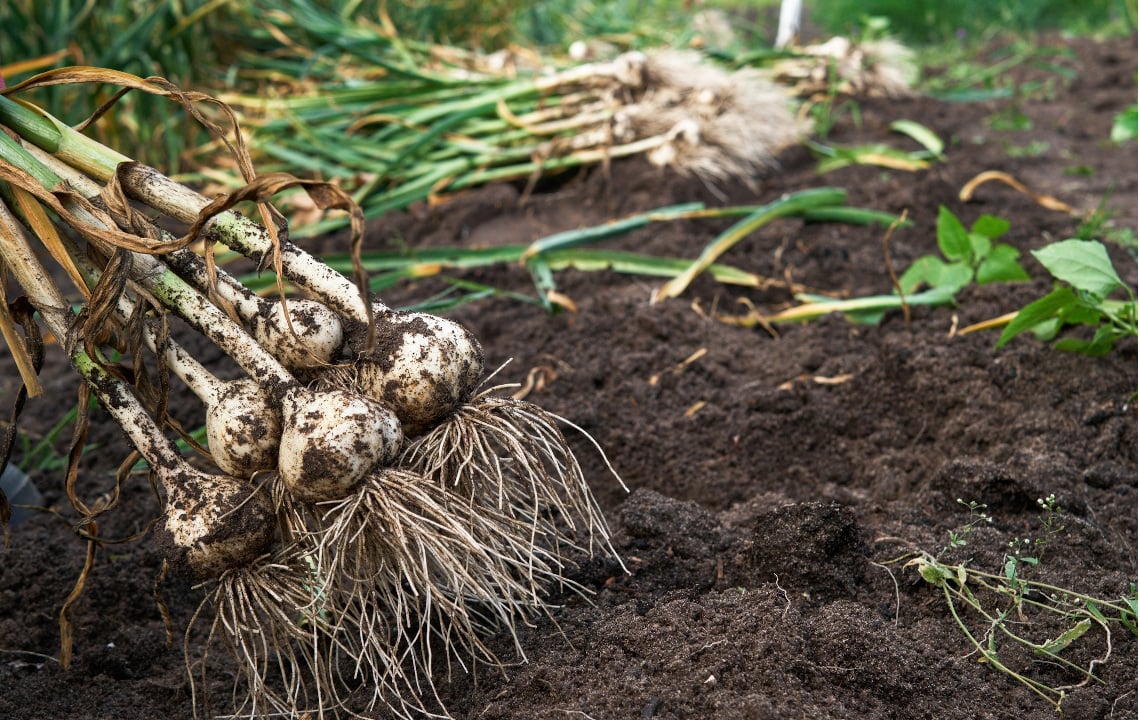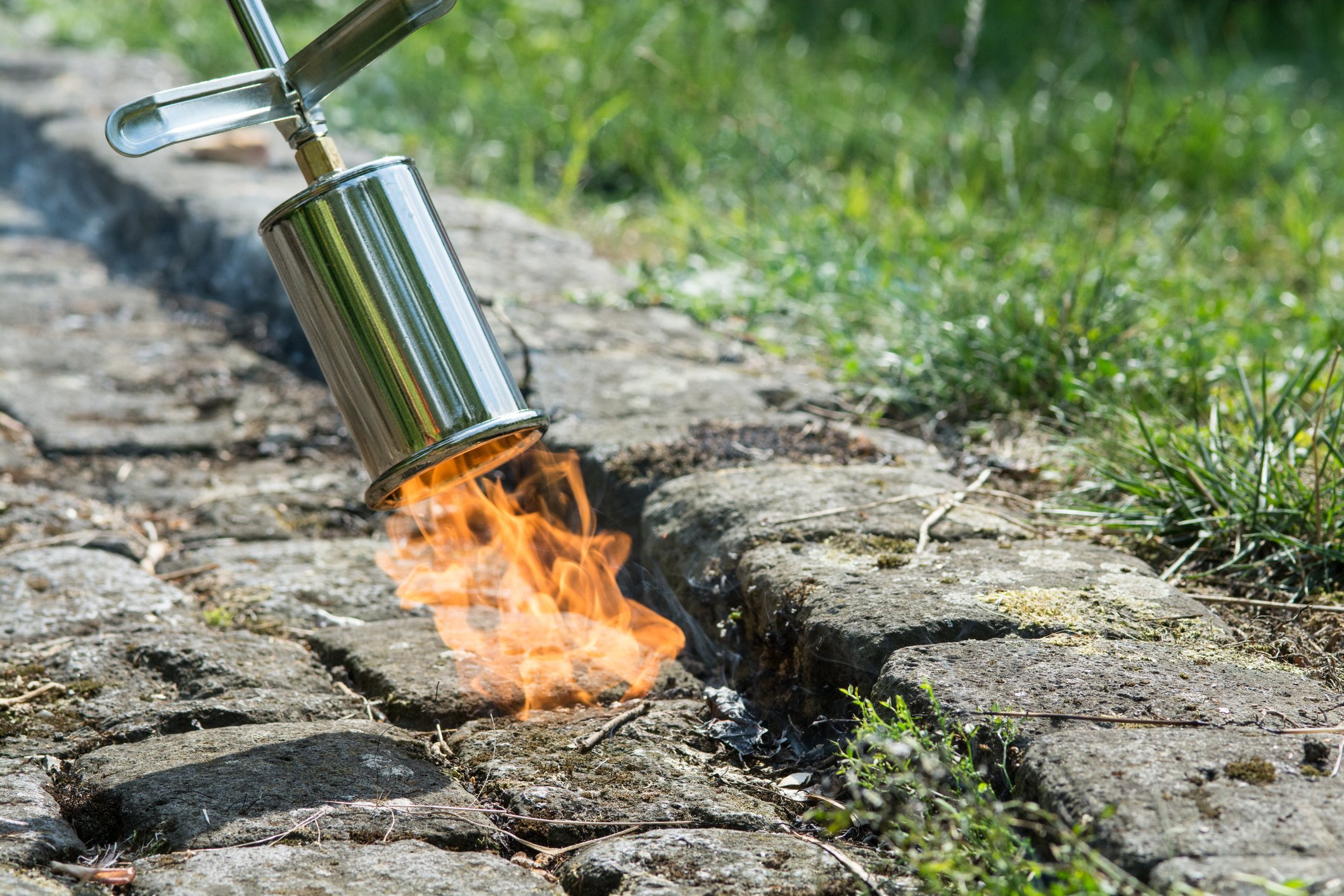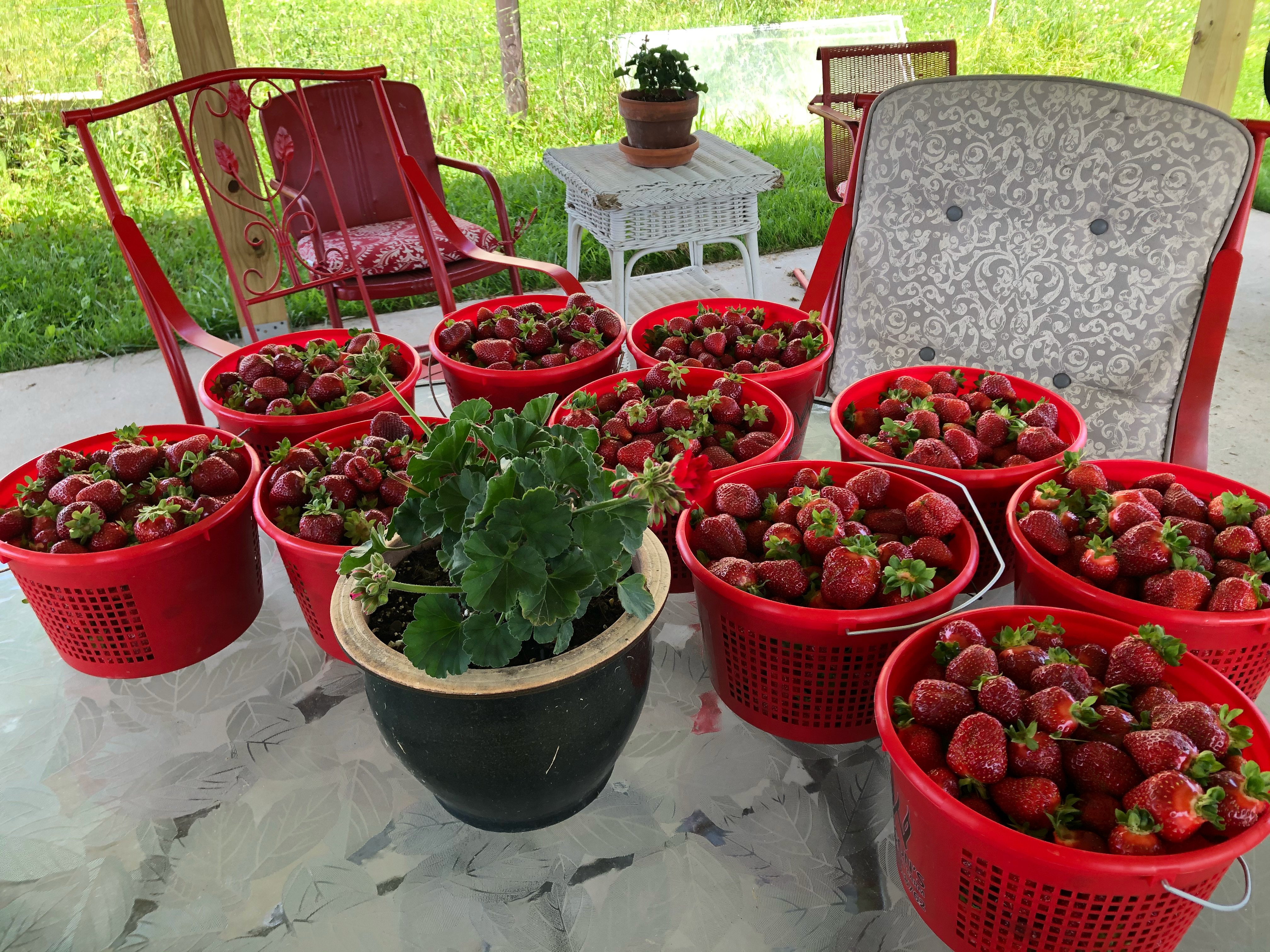If food prices, supply issues and distance to the market have you rethinking your grocery strategy, this article is for you! Discover everything you need to know about effectively stocking your kitchen and pantry while saving money bulk buying groceries in the country.
When you live in an urban or suburban area, running to the grocery store a few times a week is no big deal.
Sure, you’re likely to spend more on groceries when you shop this way, but it’s not super inconvenient.
However, for those who live in the country, there’s often no such thing as a “quick run to the store.”
Especially if you’re a foodie, a health nut or someone who’s particular about ingredients.
The solution: bulk buying groceries.
In this article, we’ll share tips on how to get started bulk buying groceries in the country and saving big, including:
- The benefits of bulk buying groceries
- The best grocery items to buy in bulk
- What not to buy in bulk
- Storing bulk items
- The best bulk grocery resources for rural folks
- And bulk buying pitfalls to avoid
If you’re new to country life and have struggled to keep a stocked pantry, this article will inspire you to rethink rural grocery shopping.
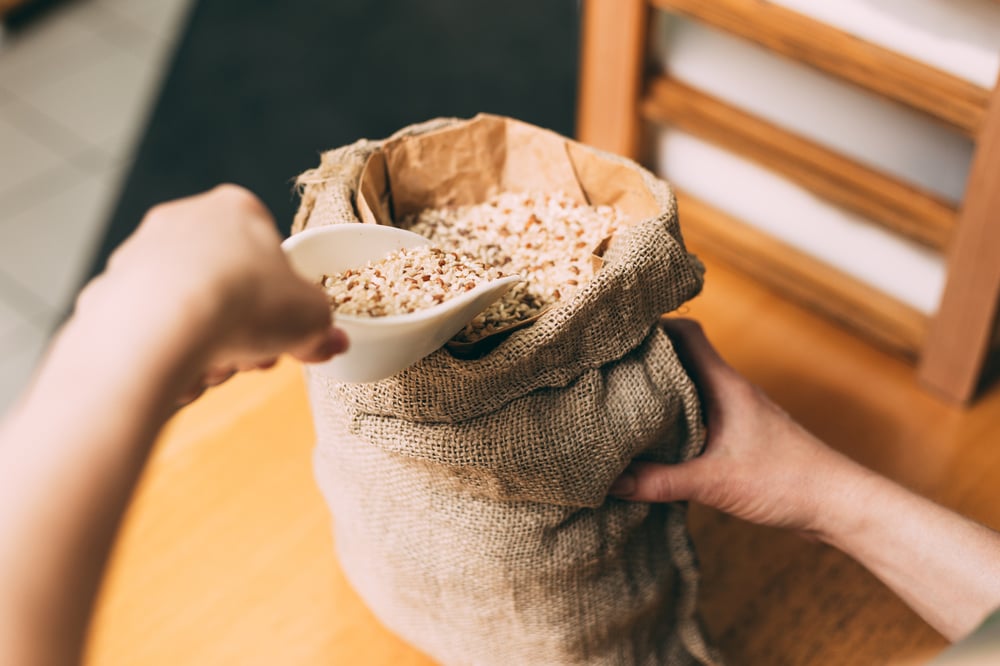
The Benefits of Bulk Buying Groceries
We’ve all heard that buying in bulk saves money.
However, this concept can be hard to wrap your head around if you’ve only tried bulk buying in supermarkets.
Yes, supermarkets may offer case discounts on certain items, and hitting sales is a great way to save and stock up.
However, when you purchase from a bulk supplier, you can save 25-50% or more off the retail price at any time.
Here are some more benefits of buying groceries in bulk for rural folks.
Buying in bulk is a more eco-friendly option.
Many bulk items are packaged using fewer and/or recyclable materials, such as paper or cardboard boxes vs. plastic clam shells and bags.
Bulk buying groceries saves time.
When done correctly, buying groceries in bulk will save you many extra trips to the store. Plus, most of the ordering takes place online.
Having what you need on hand creates peace of mind.
If the pandemic era has taught us anything, it’s that it pays to have a decent stash of food (and toilet paper!) on hand for when emergencies or shortages hit.
This is extra important for those of us in the Southeast who live in hurricane-prone areas, and/or for those who live off-grid in remote areas.
Having a reasonable amount of non-perishable food on-hand doesn’t mean you’re acting paranoid, it means you’re smart.
Plus, when once you dial in your optimal bulk-buying schedule, you’ll never have to worry about running out of staples.
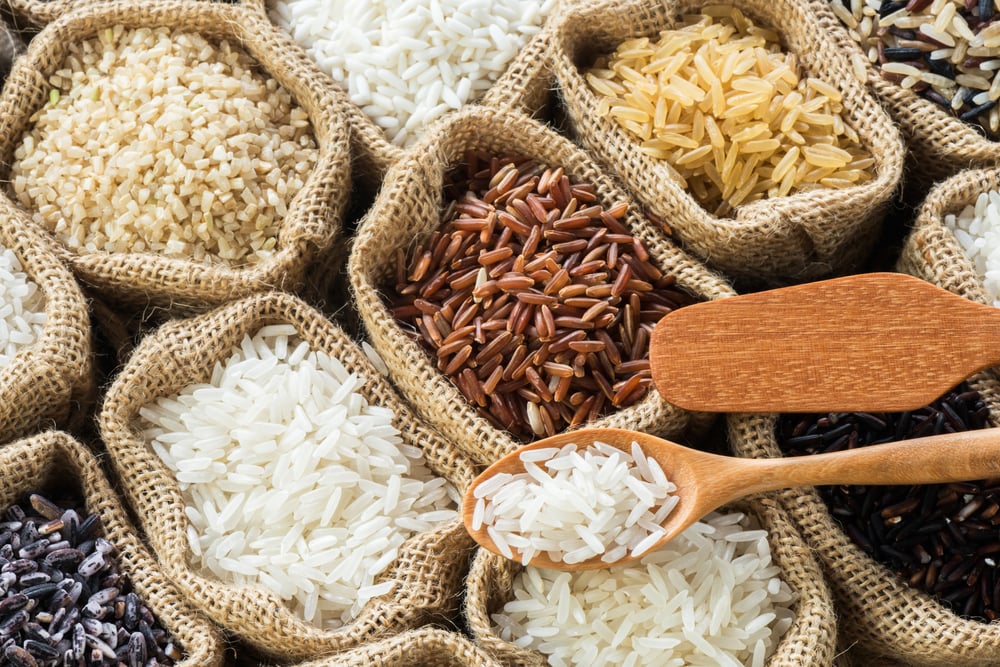
The Best Grocery Items to Buy in Bulk
The best grocery items to buy in bulk are the ones your family consumes the most that won’t go bad if stored properly.
This will be different for every family based on what you eat and how much storage space you have.
Here are a few universal bulk grocery staples to consider:
- Grains (rice, barley, quinoa, millet, etc.)
- Dried or canned Beans
- Pasta
- Flour
- Canned meats and fish
- Cooking oil
- Butter
- Dried fruits
- Applesauce
- Jam
- Salsas
- Olives
- Pickles
- Fermented foods, such as sauerkraut
- Juice
- Wine
- Canned or boxed soups
- Plant-based milks
- Evaporated milk
- Shelf-stable milk
- Salt
- Pepper
- Sugar
- Maple Syrup or Pancake Syrup
- Nuts and seeds
- Frozen Berries or fruits
- Fresh meats that can be frozen or frozen meats
- Frozen Vegetables
- Vinegar
- Honey
- Oatmeal and oats
- Peanut butter and other nut kinds of nut butters
- Coffee and tea
This is not an extensive list of everything you can buy in bulk, however, it offers a good starting point.
What NOT to Buy in Bulk
To reap the maximum benefit of bulk buying groceries, it’s important not to buy the wrong items.
What are the wrong items to buy in bulk?
Again, it varies from family to family based on what you consume the most.
For instance, the following items may not pay off if bought in bulk:
- Fresh produce (unless you plan on preserving it)
- Dairy products (with the exception of cheese, which can be frozen)
- Dried herbs and spices you don’t use often (these lose their flavor after about a year)
- Olive oil and other unrefined vegetable oils (which can go rancid quite quickly if left unrefrigerated)
- Fresh meats (unless you have ample freezer space and a generator in case of power outages)
- Flour (since flour has been separated from the germ and ground, it can go rancid if not used within a few months)
- Pancake mixes (these may last up to a year unopened. However, they can lose their leavening power if left too long. Plus, the flours can go off)
- Shelled nuts and seeds (these can also lose their freshness if not stored in a cool, dry place)
- Nut flours (these go rancid especially quickly unless refrigerated)
You probably noticed some of these are repeats from the “best items to buy in bulk” list. That is not a typo.
The best and worst items to buy in bulk can be determined by: what you consume most, how many people you’re feeding, the shelf life, your plans for food preservation (if any) and your storage capacity…
…which brings us to the next point.
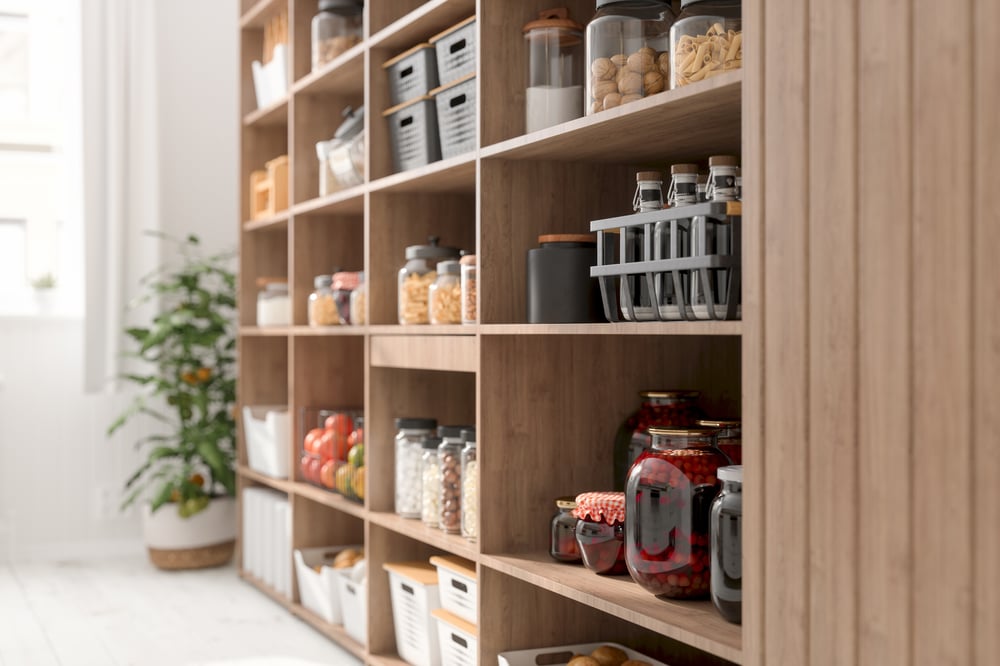
Storing Your Bulk Groceries
Storage capacity is an essential consideration when bulk-buying groceries.
Before you go hog-wild buying everything you can in bulk, you must consider storage space…because all this food has to be stored somewhere safely!
When determining your storage capacity, ask yourself the following:
- Do I have a large pantry?
- Do I have an extra fridge with a freezer?
- Do I have a deep freeze?
- Do I have a root cellar?
- Do I have extra room to store food in 5-gallon buckets or larger drums of food, such as a basement, root cellar, attic, bonus room, or closet?
- Do I have enough shelving?
The good news is the average family won't need to build a food bunker or dig a root cellar to house your bulk groceries.
Typically, carving out an extra pantry space with shelving (such as in a closet, basement, attic, garage, etc.) and investing in a deep freeze or second-hand fridge/freezer will give you enough room to start reaping the benefits of bulk buying.
The right storage containers for your bulk items are also critical when determining what to buy.
Some helpful storage containers include
- Gallon and half-gallon glass jars
- Mason jars of all sizes
- 1 - 5-Gallon food-grade buckets
- Silicone or freezer zipper bags
- Vacuum sealer and bags
- Plastic takeout containers
- Plastic or glass Tupperware
- Steel drums for storing large amounts of grains, beans, etc.
Where do you get all these storage vessels?
Some bulk grocery companies, like Azure Standard (which we’ll discuss more coming up) sell storage containers.
You can also find deals online, at homesteading stores, at the Dollar Store or at your local grocery store, big box store or price club.
Finally, if you have the desire and space, you can start saving large glass jars. Just be sure to wash and sterilize them before re-using them.
Get more creative ideas for food storage in: Creating Plastic-Free Country Kitchen: 9 Lessons from Yester-Year.

10 Awesome Bulk Grocery Resources for Rural Folks
Just a short time ago, procuring specialty foods or bulk groceries meant a long drive to a price club or big box store.
However, these days just about anything can be delivered to your door via online shopping.
There are also bulk co-op grocery services that will deliver to a drop location nearby.
Here are some of the best bulk grocery resources for rural folks and foodies:
#1: Azure Standard
We’ve written about Azure Standard before because it’s a favorite among homesteaders, they’ve been around for decades and are such an incredible resource for rural folks and foodies.
Here’s how this buying club works.
You type in your zipcode to find a buying club/drop location in your area.
Presuming the drop location works for you, you then order whatever items you want online (it’s free, and anyone can create an account) in whatever quantity you want.
For example, you can buy 1 16-oz bottle of organic maple syrup or raw honey, or a 3-gallon box or bottle.
Or, one can of pickled jalapenos or a flat of 12.
Or 1, 5 or 25 pounds of basmati rice.
The more you buy, the more you save.
You pay for your order and have the option to add items right up until they pack your order.
Your order is delivered via semi-truck to a specified drop location of your local Azure Standard buying club.
You receive an email from the buying club coordinator with the drop date and time.
You show up to help unload the truck at the specified time and location, pack up your items and you’re done!
Azure is beloved among homesteaders for several reasons:
- They focus on organic, natural and sustainably-raised products. Many items are grown on their family farm.
- They’re a family-owned business vs. a big food company.
- Their selection is incredible. They offer:
- Produce
- Dry goods
- Packaged foods
- Meats
- Dairy
- Non-toxic household products
- Nutritional supplements
- Aromatherapy
- Clean beauty
- Canning supplies
- Storage containers such as 5-gallon buckets, grain drums, glass storage containers, etc.
- Animal care
- Animal feed
- Fencing supplies
- Pet food
- Candles and candle-making kits
- Hardware
- Clothing
- Books
- Veggie starts
- Gardening supplies
- They make bulk buying accessible and sustainable with great discounts and minimal plastic packaging.
- They sell a variety of bulk food storage containers. You can even buy a used and cleaned/sanitized steel drum for storing 25-pound bags of dry goods for less than $20.00.
In other words, it’s a one-stop shop for bulk buyers.
#2: Local Farms and Ranches
Online shopping may have revolutionized rural life, but the best deals on fresh food are often found through local farms.
For example, cowpools (where you can sign up to buy a quarter, half or whole beef cow) are a great way to buy beef in bulk direct from a local farmer and save hundreds of dollars.
Don’t care for beef? You have options.
Farms also offer pork, poultry and lamb pools.
Chicken pools, for example, are a relatively new thing where a farmer will raise a chicken tractor full of meat birds for you on their land for a flat fee.
You may even be able to find specialty meats, such as ostrich and bison, depending on what’s available in your area.
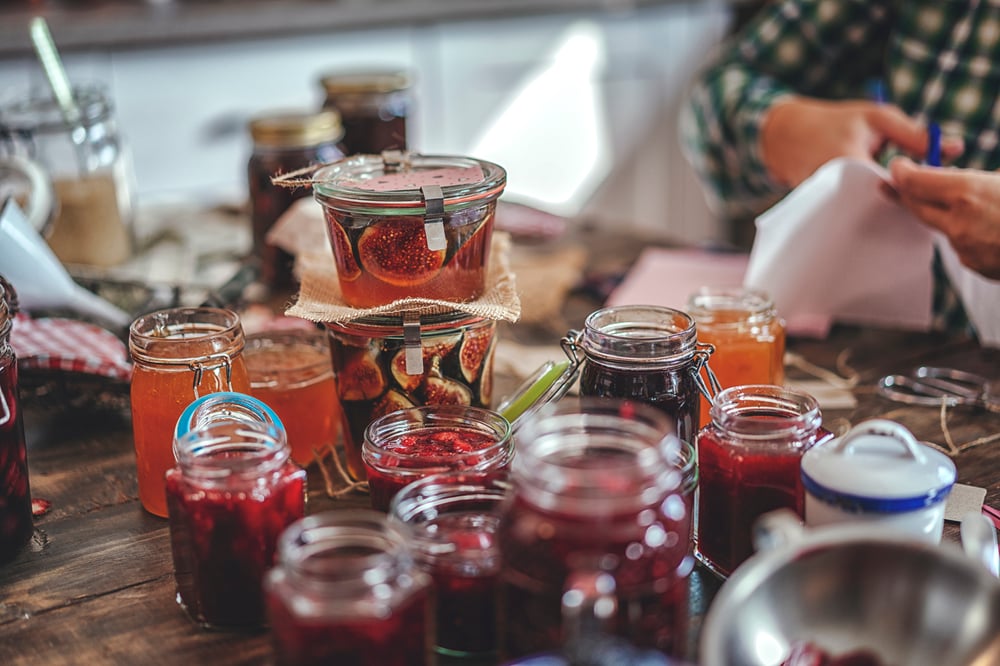
Fruit and vegetable farms also offer incredible deals on produce, especially if you visit the farm directly, buy in bulk to can or preserve or join a CSA (community support agriculture) program.
Dairy farms are also an excellent resource for deals on butter, cheese, milk and cream.
You can check out the local farm scene at your local farmer’s market or visit eatwild.com and localharvest.org.
#3: Boxed.com
Boxed.com offers a hassle-free bulk-buying experience with a great selection and no membership fees.
They offer a great selection of packaged groceries, drug store items, home goods and specialty foods and beverages at about 20-30% savings. They even have cold-packed items like frozen entrees, ice cream and more.
Anything you find in the non-fresh section of the grocery store, you can find here, but in bulk quantities.
They also have an auto-save order feature that reminds you when it’s time to re-order certain items. Auto-save orders are further discounted by 5-10%.
Boxed does offer a subscription service with added perks, such as 2% cash back on purchases and lower free shipping minimums, for a monthly fee.
If you buy a lot of packaged foods and household goods, Boxed.com is worth considering.
#4: Price Clubs
Price clubs may not be right for everyone, but they can save you a bundle of cash and time when bulk-buying groceries.
Plus, thanks to the migration of families further and further outside cities, they’re more accessible to rural areas than they were a few years ago.
The right price club for you depends on what types of foods you like to buy and what’s closest to you.
For organics and specialty foods, you can’t beat Costco. Plus, their online selection of packaged foods has expanded significantly post-pandemic.
Sam’s Club or BJs are both good options for conventionally-grown foods and Sam’s Club or BJs are both excellent options and carry some organics.
For rural folks, the key to efficient price club shopping is to plan your trips wisely and take advantage of online shopping.
For example, if you live more than an hour from a price club, a quarterly bulk-buying shopping trip is an efficient use of time.
However, if you live closer, you can do a monthly haul.
Either way, your efforts will pay off with savings of about 25-30% in groceries (provided you stick to your list and avoid buying items you don’t need).
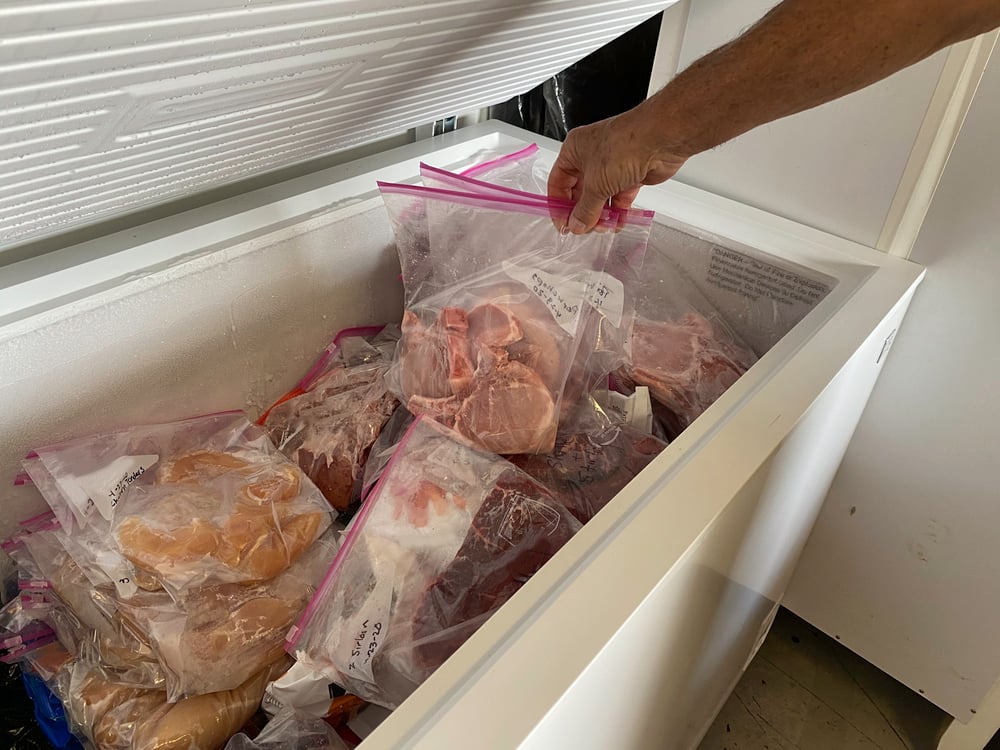
#5: Online Meat Delivery Services
If you can’t find the selection or quality of meat you want in your area, an online meat box delivery service can be a great bulk option.
This is especially helpful for those who want humane pasture-raised meats and can’t find what they need locally.
Butcher Box is the best-known subscription service and a favorite of many homesteading influencers.
Wild Pastures is a newer similar service with competitive pricing (they claim to have the lowest prices without cutting quality). 100% of their meat is sourced from regenerative American farms.
Both companies offer 100% grass-fed beef, free-range organic chicken, humanely raised pork and wild-caught seafood, delivered.
You can place one-time orders, but these services are mainly based on subscriptions (and that’s where the savings are).
So, you subscribe, choose the type of box you want (you can customize your selections) and select the cuts of meat and the frequency of delivery. The more you buy, the more you save.
Then, they ship your meat to you in a freezer pack and deliver it again as you specify.
These meat delivery services are a great deal (versus going to the grocery store) and give you a good amount of variety.
However, they may provide a different level of savings than a cowpool.
#6: Thrive Market
Thrive Market is like an online natural foods price club.
You pay an annual membership fee to access discounts on natural foods, supplements, eco-friendly household items and clean beauty products.
Plus, the more you buy, the more you save, they offer an auto-ship option for deeper discounts, and you earn rewards for future purchases.
Thrive is excellent for packaged and canned foods, eco-friendly diapers, non-toxic household products and specialty foods. They also offer good deals on organic/sustainable wine, meats, fish and seafood.
They may also be a good resource for specialty pet food, although the discounts are not substantial.
However, their products are not packaged in bulk, so you get a discounted price on buying smaller items.
Overall, it’s an excellent resource for home delivery of organic, natural and specialty packaged foods and non-toxic household products.
But, you won’t get the bulk savings you would from buying 25 pounds of rice or joining a cowpool, for example.
#7: Frontier Wholesale Co-op:
Frontier has been around for decades and is a wonderful resource for wholesale prices on natural products, including personal care products, bulk teas, coffee, herbs, seasonings, baking goods, aromatherapy, natural remedies, baby food, eco-friendly clothing and personal care products.
Since they source and pack many of their items, such as herbs, teas, spices and dry goods, they can pass those savings on to the customer.
Click this link for info on how to start your own buying club.
You need five households to qualify for wholesale prices, or you can sign up as a non-member buyer.
There is no minimum order, and they offer free shipping on orders over a certain amount. Plus, as an organizer, you get an annual share of the company’s profits.
Not ready to join the co-op? You can test Frontier’s bulk products through various vendors, including Amazon.
#8: Your Local Grocery and Big Box Stores
Typically, you’ll pay more to stock up in bulk from a retail or grocery store.
However, you can save big if you buy items on sale or clearance and raid the bulk bins.
Meats, for example, are often put on sale just before their expiration date. So, if you have freezer space handy, this can be a good buy.
Plus, some grocery stores will offer case discounts on packaged items.
The only downsides are that you’re typically dealing with more packaging and time spent watching for sales and shopping.
However, there are some great deals to be had!
#9: Nuts.com
Don’t let the name fool you, they sell more than just nuts.
This multi-generation family-owned company has been selling bulk foods since 1929.
In addition to nuts, they offer a vast selection of flours, dried goods, grains, candies, chocolates, nut flours, trail mixes, cooking oil, dried fruits, superfood powders, coffee tea, nut butters, organic and gluten-free products, breakfast bars, honey, maple syrup, dried vegetables, condiments, anything you need for baking and hundreds of other items.
There’s no membership or subscription required, and you can buy a 1-pound bag and pay more or a 25-pound case and spend a lot less.
This feature helps you avoid over-buying-remorse (a common pitfall of bulk buying) by trying new items before you go all-in.
They also offer free shipping on larger orders and have great sales.
Bottom line: the more you buy, the more you save. And with no subscription fees or minimum orders, Nuts.com is a great place to buy dry goods in bulk.
#10: Amazon
Amazon needs no introduction (and may not be your cup of tea) and can be a convenient place to buy groceries in bulk.
A quick search of “groceries” will yield endless options for case buys, box deals and bulk-packaged items.
Plus, many of these items are curated and sold by local sellers.
The trick with bulk buying on Amazon is knowing what groceries are actually worth, so you don’t overpay.
For example, some sellers will buy a case of something at a Price Club for $12.00 and then re-sell it on Amazon for double the price.
Sure, it may be slightly less than you’d pay at the grocery store, but you’d be much better off purchasing it from a price club yourself.
The real deals are found through sellers who got great bargains at a discount store or grocery store sale and pass those savings onto you.
Bottom line: Amazon can be a great bulk buying resource, but it can also be a rip-off if you’re unfamiliar with the price point for various items. To avoid this, focus on buying groceries you’re familiar with.
To Recap
Bulk buying groceries can be an incredible way to save time and money when living rural.
The key takeaways to doing this right are:
- Avoid buying everything in bulk (because almost nobody needs 25 pounds of bay leaves)! Instead, make a list of the foods you eat most and focus on those.
- Analyze your space and storage capacity (pantry, fridge, freezer, root cellar, food preservation methods) before you buy.
- Determine what type of storage containers you’ll need (and where to get them) before you buy.
- To choose the best resources that meet your needs
- For example, if you’re a homesteader working from home with animals who likes to buy organic, Azure Standard may be a perfect fit (imagine picking up your chicken feed, your favorite chocolate and organic brown rice in one stop!)
- If you live on acreage and work away from home, Boxed.com, Nuts.com, a meat delivery service, Amazon or Thrive Market would all be convenient options.
- If you live or work fairly close (30-45 minutes) to an urban or suburban area, a price club is a no-brainer.
- Stick to your list and avoid over-buying items you won’t use up in time. You can ruin your bulk-buying savings quickly if you start impulse shopping!
And have fun!
Bulk buying groceries can be an empowering experience in terms of time and money savings and the security that comes from a well-stocked pantry and freezer.


